Jack Wattley: Godfather of the Discus
Jack Wattley at a Recent Reptile Show in Daytona
Jack Wattley was originally from Cleveland, Ohio. As a small child, he began keeping tropical fish. His first fish weren’t anything unique, just what was common in the hobby at that time.
Similar to many of us, Jack’s first exposure to discus came from pictures in fish books. He purchased his first discus from the N.Y. Aquarium Stock Company. These discus were wild common browns from Brazil. Unfortunately, they did not last very long. Moving to Miami, he decided to pursue work owning three clothing stores and just keep discus as a hobby.
In 1963, he traveled to the Amazon. Jack had heard from Harald Schultz, an anthropologist from Sao Paulo, Brazil, that green discus were in Lake Jurity. The blue discus, Symphysodon aequifasciata haraldi, is named for Harold Schultz. While in Manaus, Brazil, Jack met several pilots for a petroleum company. The men were trying to learn English. The pilots were willing to fly Jack over Lake Jurity while they were out surveying for their petroleum company in exchange for help in learning English. The lake turned out to be muddy, and Jack couldn’t find discus in it.
Jack ended up meeting a French pilot who flew people over the Amazon in a six-seat plane. The pilot told Jack that he knew where the discus were and would fly him for free the next time he didn’t have a full group. The plane could land on both land and water. He took Jack to Tefe and Fonte Boa. Since Jack was able to go out on his own in this area, he could go up and down the streams around Tefe looking for discus. This is where he found the green discus. Two years later, Jack planned his next trip to the Amazon. Once again he set out on his own. This time he went to Lake Manacupura where he collected blue discus.
Jack Wattley created the turquoise discus by crossing the blue and the green discus. At first he bred only for color, but later on he bred to increase size and vigor. There was a trade magazine published In the Tampa area that was used to promote fish from the Florida Tropical Fish Farm Association. Jack’s turquoise discus became well known in the magazine. As word spread, so did the demand for his discus.
A significant key to Jack’s success was that he perfected a method to artificially raise the fry. There were other people trying to raise fry without parents, but Jack perfected it. Other people in the hobby were angry at Jack for not sharing his secret. He responded, “I was the one who went to the Amazon when none of you wanted to come along. I got sick with dysentery and diarrhea. I also spent time and money after work doing water changes and caring for the discus. It will stay a secret at this time.” Finally, Jack did release his secret at a later time.
Jack Wattley with Discus
In the early days, Jack was selling his discus for $6.75 each. The .75 cents comes from the clothing business. It was common for wholesalers to end the price in .75 cents. A gentleman came from Japan in 1980 and wanted to buy discus for the Japanese market. Jack knew of their economy and that they treasured tropical fish. Jack quoted the man a price of $10.75 each, and the man agreed to this price.
When sending fish to Japan, Jack would first ship the discus to a friend in Los Angeles, California. The friend would then hold the fish for a week before sending them on to Japan. Jack continued this method from 1980 to 1994. He and his wife traveled to Japan each year from 1981 to 1994. During these trips, he would give talks on discus. He has been a speaker in many of the major cities in Japan.
Jack Wattley is a pioneer and living legend in the discus world. When he started in the hobby, most discus in America were wild browns with a few blue striations. His development of the turquoise discus was a major breakthrough. The “Wattley Turquoise” was the most sought-after discus of its time. The art of artificial fry raising meant that discus could be produced on a much larger scale and available to hobbyists around the world. He is an international judge of discus and still in demand as a speaker at fish shows.
QUESTIONS:
- Why is Jack Wattley so significant among discus breeders?
- How did Jack Wattley transform discus breeding?
- How was his “Wattley Turquoise” significant?
- How was his method of artificially raising fry important?



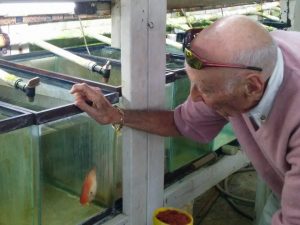
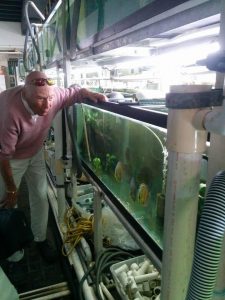
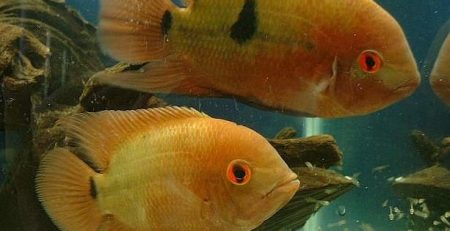
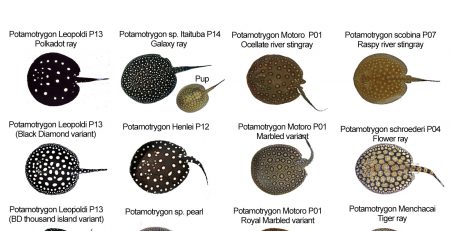
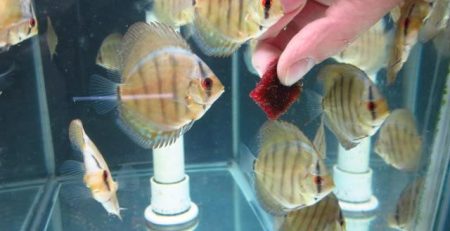
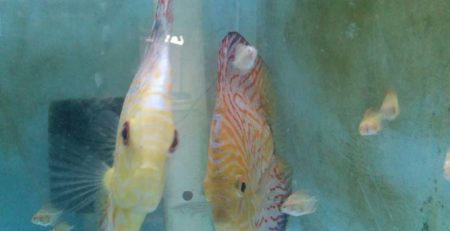
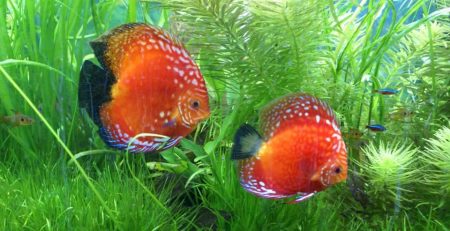
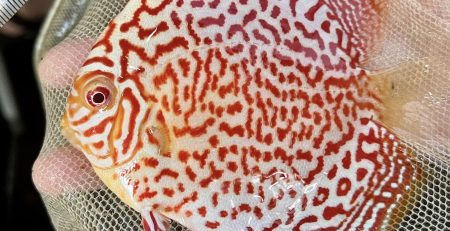

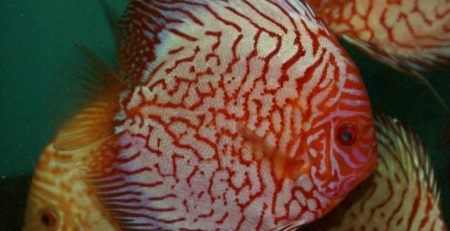
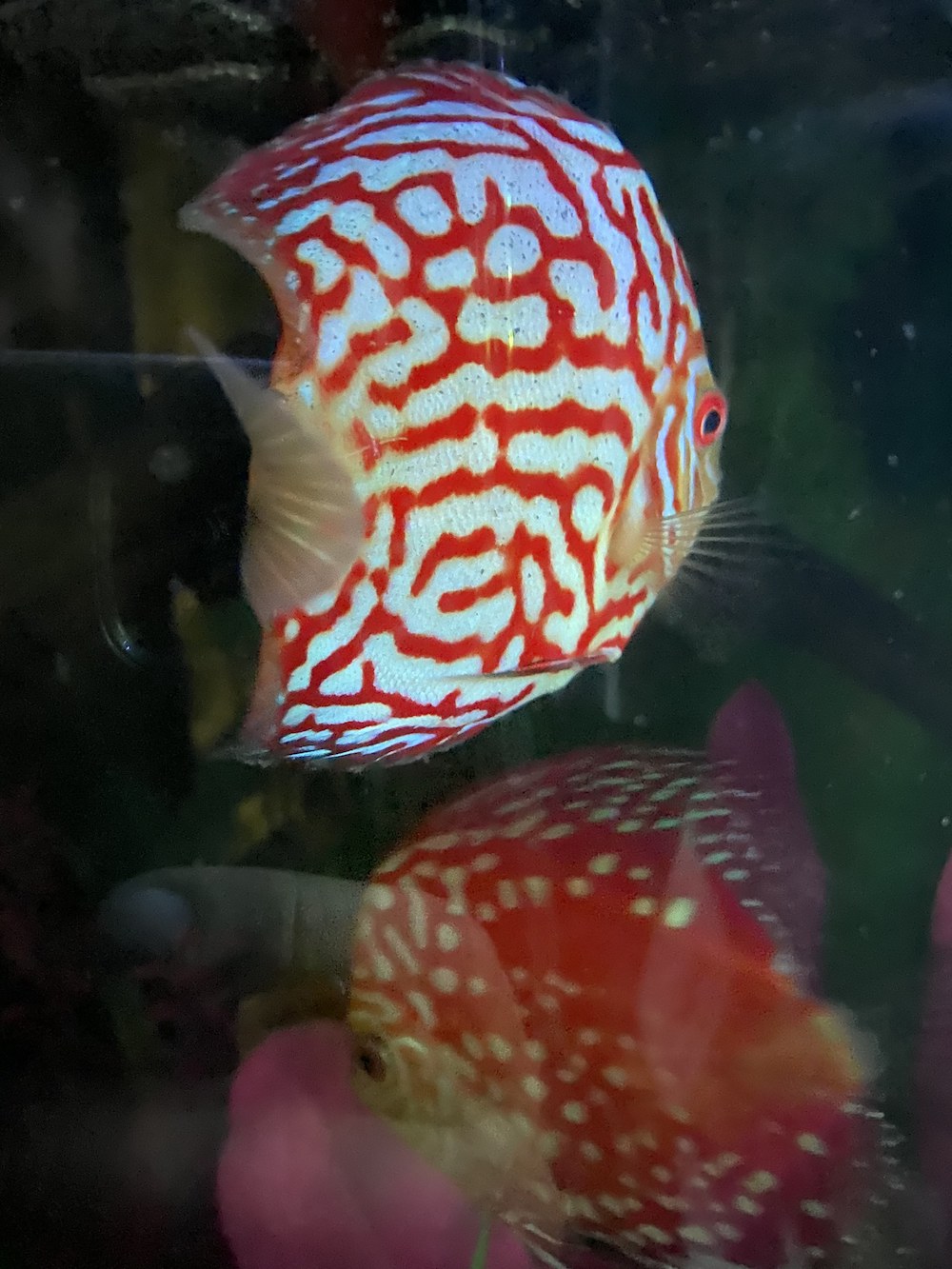
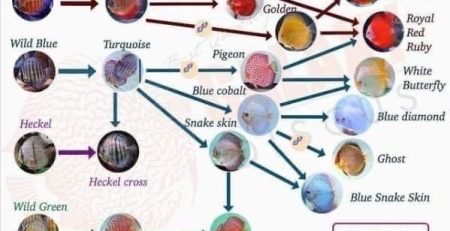
Leave a Reply
You must be logged in to post a comment.